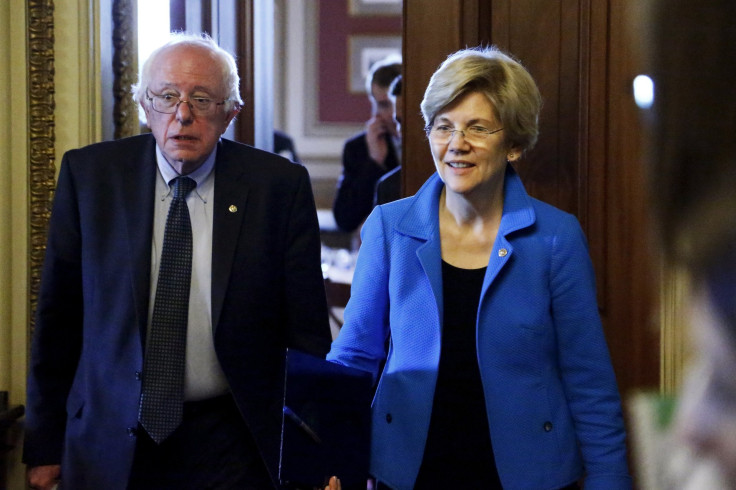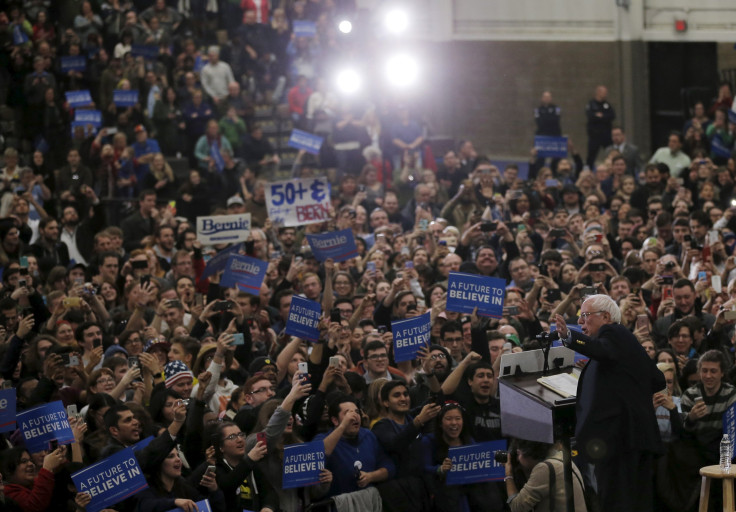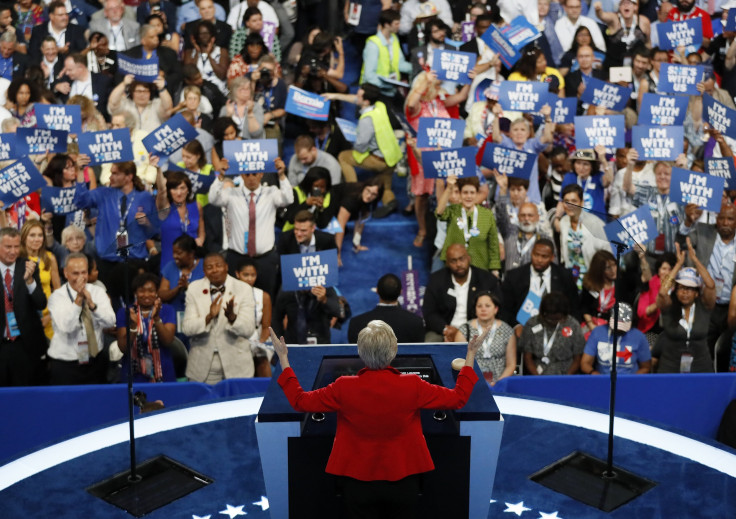Will Bernie Sanders, Elizabeth Warren Run For President In 2020? Democratic Party Considers New Leadership

The Democratic Party is slowly getting back on its feet after days of shell shock following the 2016 presidential election. As the party determines how to win back voters who flocked to the GOP's message of immediate change in Washington, its transitions in leadership may not yield the political shakeup some were hoping for.
Officials announced Wednesday New York Sen. Chuck Schumer would replace Harry Reid, who chose to retire instead of seeking re-election, as the senate minority leader. A lifelong politician, Schumer has served in the Senate for 18 years, and is seen by the party’s tenured officials as the appropriate Democratic leader to negotiate with Republican Senate Majority Leader Mitch McConnell. Schumer has promised to deliver a new economic message to working-class Americans, similar to what resonated with former Democratic primary candidate Bernie Sanders’ base during the presidential campaign.
Democrats also moved this week to delay the House Democratic Caucus election, effectively postponing a potential re-election of House Minority Leader Nancy Pelosi. What this means for Pelosi, one of the last-standing female figures in a leadership position for the party, remains unclear.
Most Democratic officials don’t foresee major changes to the party’s leadership. However, the move is being seen as a much-needed intervention for Democrats to come together and map out a future for the party.
The Democratic Party can no longer be led by the liberal elite. We have to stand up to Wall Street and the greed of corporate America.
— Bernie Sanders (@BernieSanders) November 14, 2016
House Democrats spurred by the party’s upset in the national election have debated whether Pelosi can connect with minorities and America’s white working class population. Some officials have suggested the party needs new leadership to better resonate with Middle America, instead of re-electing the California Democrat and career politician.
Pelosi initially called for the party’s election to be delayed until after the Thanksgiving holiday and, after a contentious, 90-minute closed-door meeting, officials agreed to put the process on hold.
"I think it’s healthy," Minority Whip Steny Hoyer (D-Md.) told Politico of the session. "I think we’re going to talk. I think that’s appropriate. I don’t think it’s going to make any substantial difference on the [leadership] elections … but I think that it is absolutely important for members to feel they’ve got an opportunity to express their opinions."

In contrast, the GOP’s House leadership election process went off without a hitch, with House Speaker Paul Ryan being re-elected to his leadership post in a unanimous vote.
Beyond Congress, Democrats are looking to stand out to voters in future elections, including the 2020 presidential contest. Democrats want someone able to appeal to the core message of change and immediate reform in D.C. that the GOP harnessed in 2016. Sanders, who took on Hillary Clinton in the Democratic primaries and was once believed to have a potential landslide victory over Trump, has already said he won't take another run for the White House off the table just yet.
"Four years is a long time from now," Sanders told the Associated Press. “We'll take one thing at a time, but I'm not ruling out anything… It is an embarrassment, I think, to the entire of Democratic Party that millions of white working-class people decided to vote for Mr. Trump, which suggests that the Democratic message of standing up for working people no longer holds much sway among workers in this country."

And then there’s Sen. Elizabeth Warren, the Massachusetts firebrand once seen as a top-pick for joining Clinton on the Democratic ticket. Her appeal to middle-class Americans and liberals and effervescent campaign stumps for has been lauded as the enthusiasm and determination the Democratic party needs moving forward.
Both Sanders and Warren were seen as instrumental figures in igniting the Democratic Party’s base for Clinton during the campaign. Warren took on Trump during several high-profile speeches, where she baited the GOP nominee for attacking minorities and the working class.
Sanders was announced the Democratic Party's chairman of Democratic outreach Thursday, while Warren seems to be positioning herself to continue her fight against Trump's policies.
"We will stand up to bigotry. No compromises ever on this one. We will fight back against attacks on Latinos, on African Americans, on women's, on Muslims, on immigrants, on disabled Americans, on anyone," Warren said after the GOP’s Election Day victory. "Whether Donald Trump sits in a glass tower or sits in the White House, we will not give an inch on this, not now, not ever."
© Copyright IBTimes 2024. All rights reserved.












